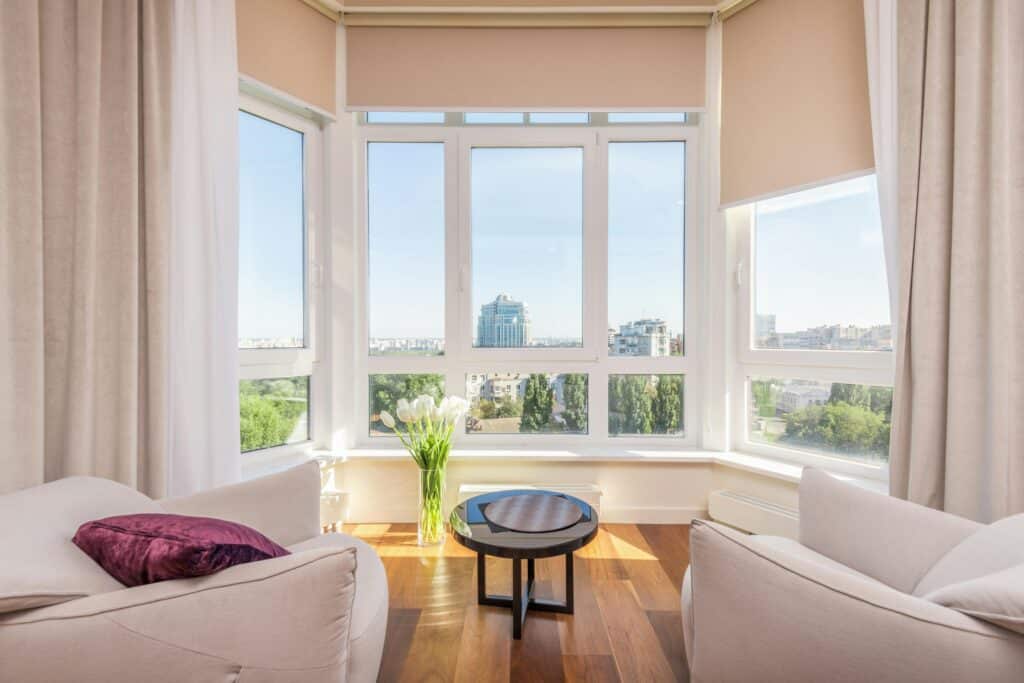The Truth About UV Rays, Vitamin D, and Tanning Through Windows
When you think about soaking up some sunshine to boost your vitamin D levels or get a tan, you probably envision spending time outdoors. But what about the sunlight that filters through your windows? Does it have any impact on your vitamin D synthesis or give you that golden glow? Let’s dive into how UV rays interact with windows and what it means for your health and appearance.

Understanding UV Rays and Windows
Ultraviolet (UV) rays from the sun are divided into three types: UVA, UVB, and UVC. Of these, UVB rays are the primary contributors to vitamin D synthesis in the skin. UVA rays, on the other hand, penetrate the skin more deeply and are primarily responsible for skin aging and some types of skin damage. UVC rays are absorbed by the Earth’s atmosphere and don’t reach the ground.
When sunlight enters through a window, its UV radiation is partially filtered out. Glass windows, especially those in homes and cars, block a significant portion of UVB rays but let UVA rays pass through more readily. This filtering effect means that while you might still be exposed to UVA rays through windows, UVB rays—crucial for vitamin D production—are largely blocked.
Vitamin D Synthesis Through Windows
Vitamin D is synthesized in the skin when UVB rays interact with it. Since standard glass windows block most of these UVB rays, you’re unlikely to get a substantial amount of vitamin D from sitting by a window. So, if you’re depending on your indoor sunlight exposure for your vitamin D needs, you might be falling short.
However, if you’re looking for an efficient way to maintain healthy vitamin D levels, it’s crucial to spend some time outdoors where your skin can directly interact with UVB rays. Dietary sources of vitamin D, such as fatty fish, fortified foods, and supplements, can also help bridge the gap if outdoor exposure is limited.
Tanning Through Windows
When it comes to tanning, UVA rays are the main culprits, as they penetrate deeper into the skin and can lead to a tan. While windows do allow UVA rays to pass through, the intensity is generally lower compared to direct sunlight. This means that while you might get some degree of tanning through a window, it’s usually minimal and much slower compared to spending time outdoors.
Moreover, prolonged exposure to UVA rays, even through windows, can still contribute to skin damage and aging over time. So, while you might notice a slight change in skin color from sitting by a sunny window, it’s not a substitute for sunbathing or using a tanning bed, which can come with their own set of risks.
SmartShield glass technology from Joyce Manufacturing take UVA protection to the next level with a standard LoE (low emissivity) coating that blocks UV rays and infrared light from entering a home. SmartShield packages offer double or triple panes of LoE and are excellent for any climate and budget. Each LoE covered window is paired with another coating called Neat+ to create next level protection for a home. Neat+ is currently applied to most of our glass products but come standard on every product by the end of 2024. Every window from Joyce contains SmartShield glass to keep energy bills low, and homeowners satisfied. Neat+ also has another excellent feature, which is the way it interacts with water to help rain and dirt bead off the window. Windows coated with Neat+ require little maintenance from homeowners because of this desirable feature. Learn more about SmartShield Glass and Neat+ here.
Practical Takeaways
Vitamin D: For effective vitamin D synthesis, spending time outdoors in direct sunlight is more beneficial. Supplementing with vitamin D-rich foods or supplements can also help maintain adequate levels.
Tanning: If your goal is to achieve a tan, exposure to direct sunlight is more effective than sitting behind glass. However, it’s essential to use sunscreen and take measures to protect your skin from harmful UV radiation.
Skin Health: Be cautious about prolonged UV exposure, whether through windows or directly. UV radiation can accelerate skin aging and increase the risk of skin cancer.
In summary, while you can receive some UVA exposure through windows, UVB rays—essential for vitamin D production—are significantly blocked. If you’re aiming for tanning through windows, it’s probably not going to happen. It’s best to get outside and enjoy the sun responsibly if you’re looking to get some color or Vitamin D. And remember, protecting your skin from excessive UV exposure is crucial for long-term health.

